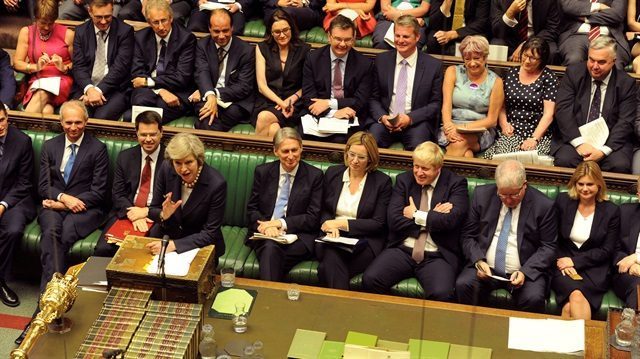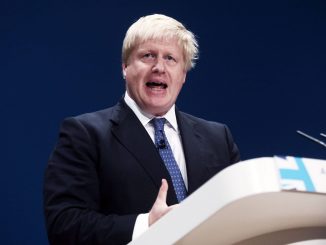
In a scathing report, the Foreign Affairs Committee said Cameron and Nicolas Sarkozy, the former president of France, were “ultimately responsible” for the failure of the 2011 campaign of air strikes and the subsequent rise of Daesh in the region.
The leaders launched the action with backing from the UN Security Council after Muammar Gaddafi’s regime threatened to attack the rebel-held city of Benghazi.
Other options were available that may have protected civilian lives but the U.K. focused exclusively on regime change through military means, committee Chairman Crispin Blunt said in a statement announcing the report’s findings.
“This report determines that U.K. policy in Libya before and since the intervention of March 2011 was founded on erroneous assumptions and an incomplete understanding of the country and the situation,” he said.
He added: “Having led the intervention with France, we had a responsibility to support Libyan economic and political reconstruction.
“But our lack of understanding of the institutional capacity of the country stymied Libya’s progress in establishing security on the ground and absorbing financial and other resources from the international community.”
The committee also criticized the handling of Libyan affairs after the fall of the Gaddafi regime, which saw rival warlords — as well as Daesh and other extremist groups — fill a power vacuum.
“The possibility that militant extremist groups would attempt to benefit from the rebellion should not have been the preserve of hindsight,” the report said.
“It may be that the U.K. government was unable to analyse the nature of the rebellion in Libya due to incomplete intelligence and insufficient institutional insight and that it was caught up in events as they developed.
“U.K. strategy was founded on erroneous assumptions and an incomplete understanding of the evidence.”
In a statement to the BBC, the Foreign Office defended the U.K.’s intervention. “Muammar Gaddafi was unpredictable and he had the means and motivation to carry out his threats,” a spokesman said. “His actions could not be ignored and required decisive and collective international action.”



